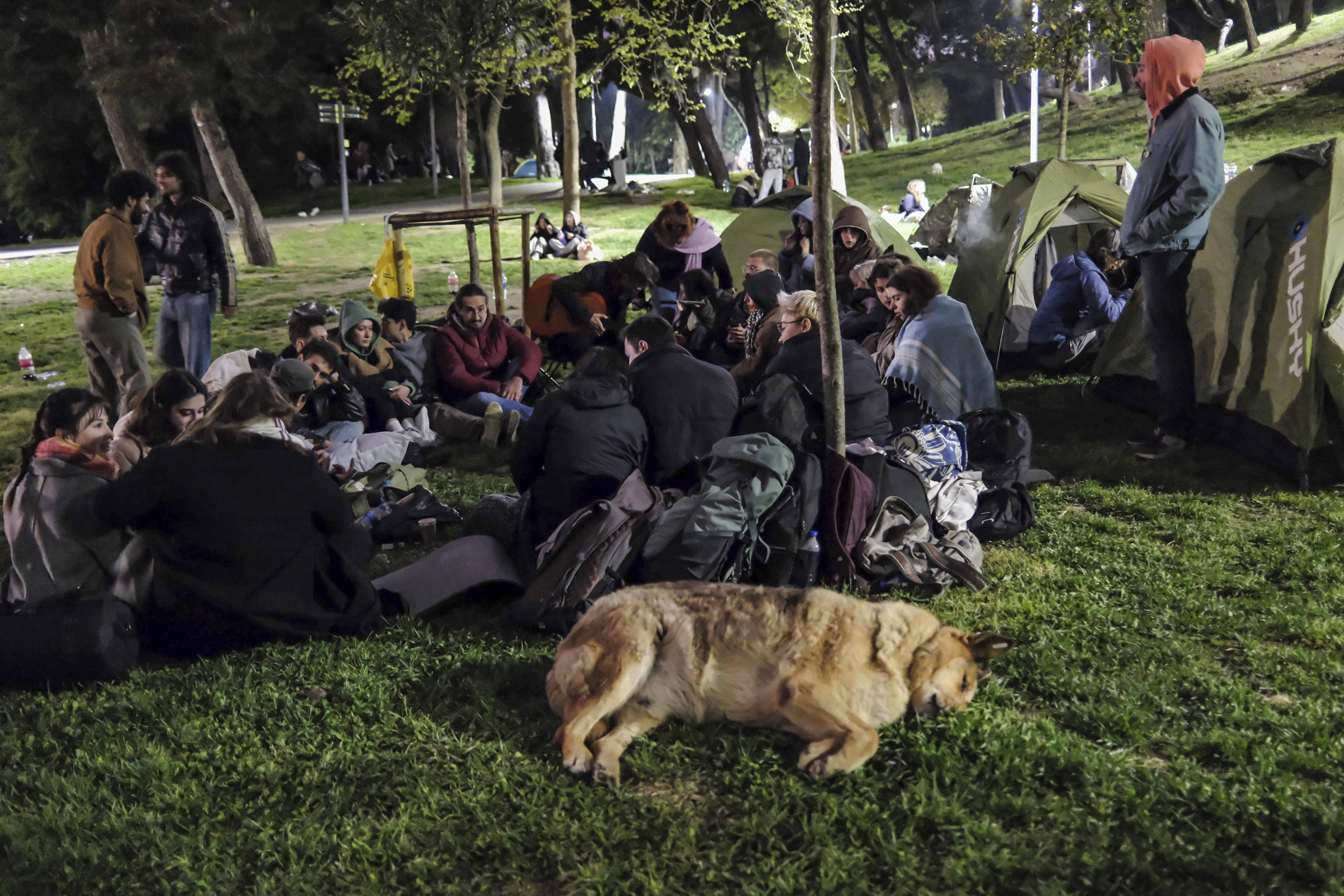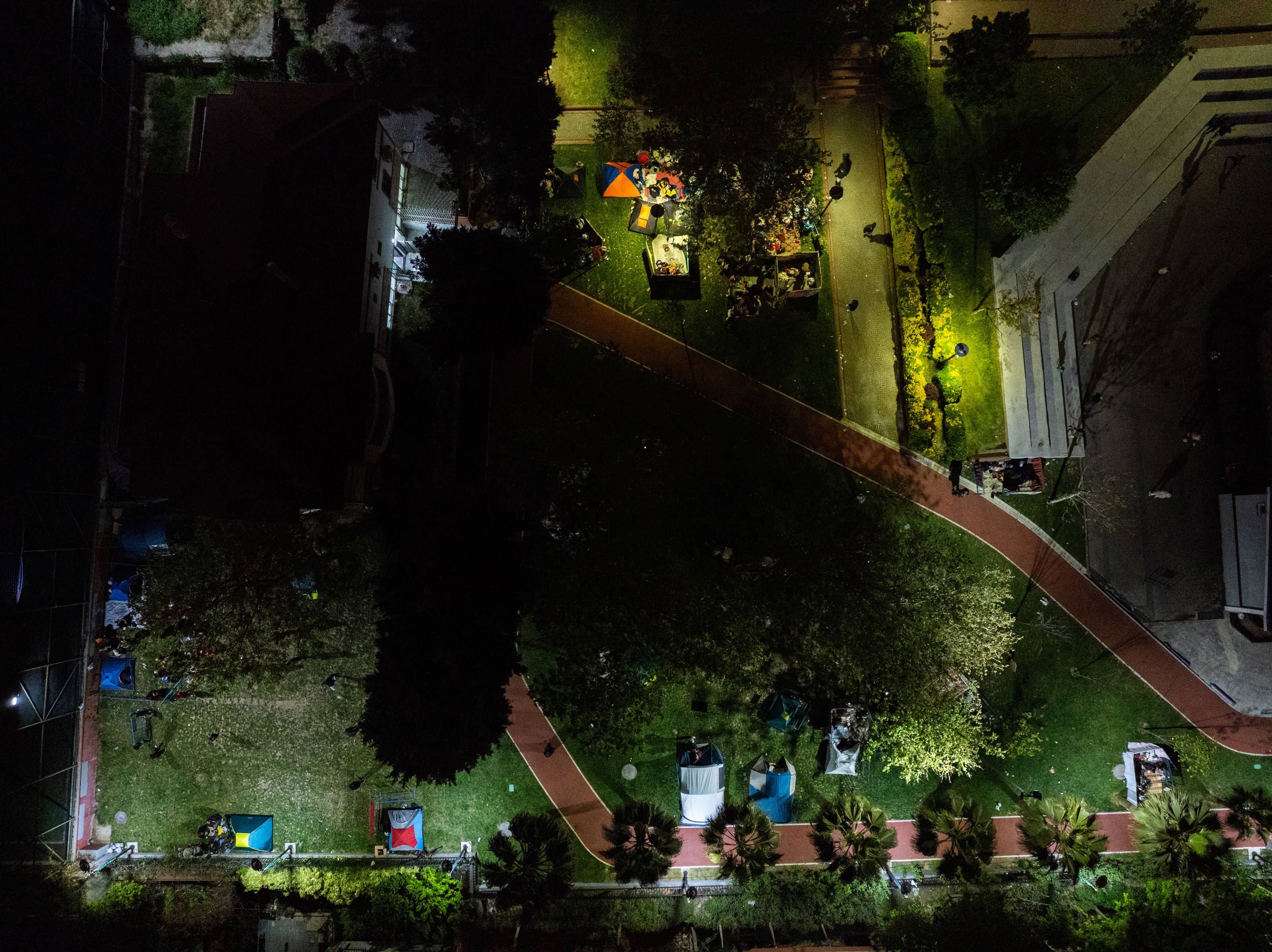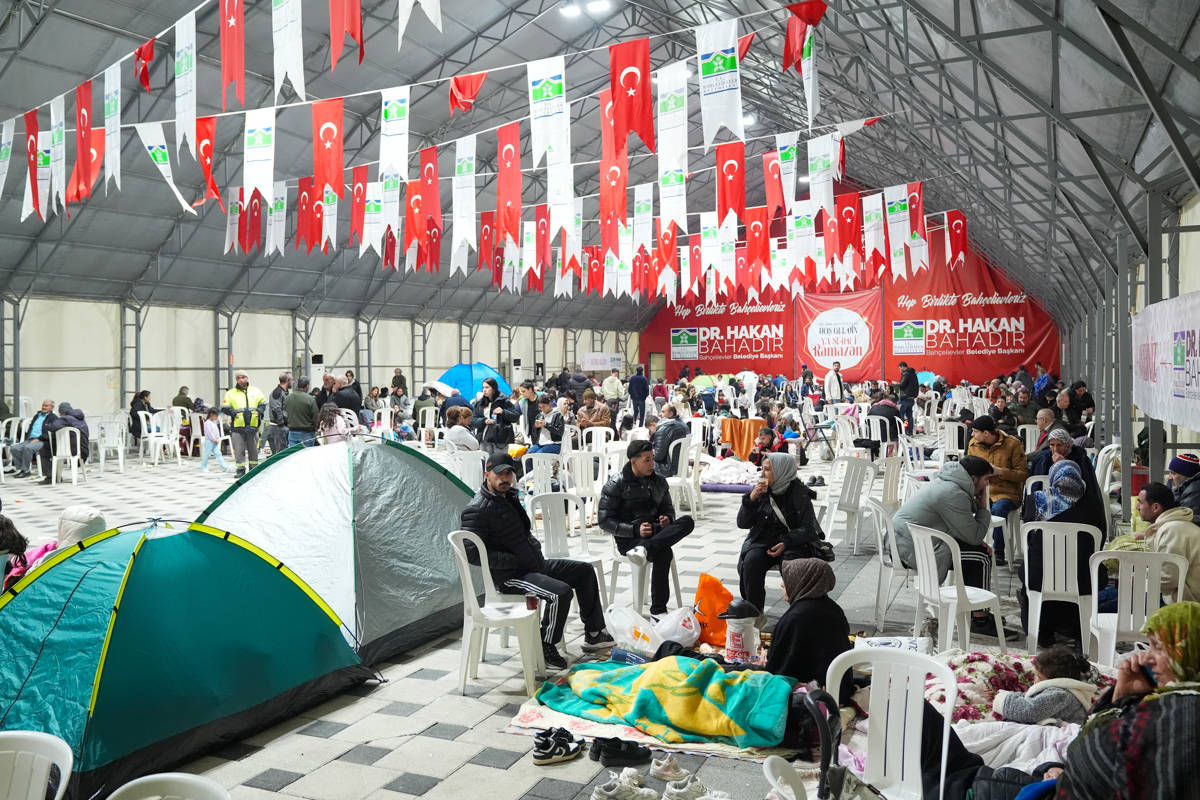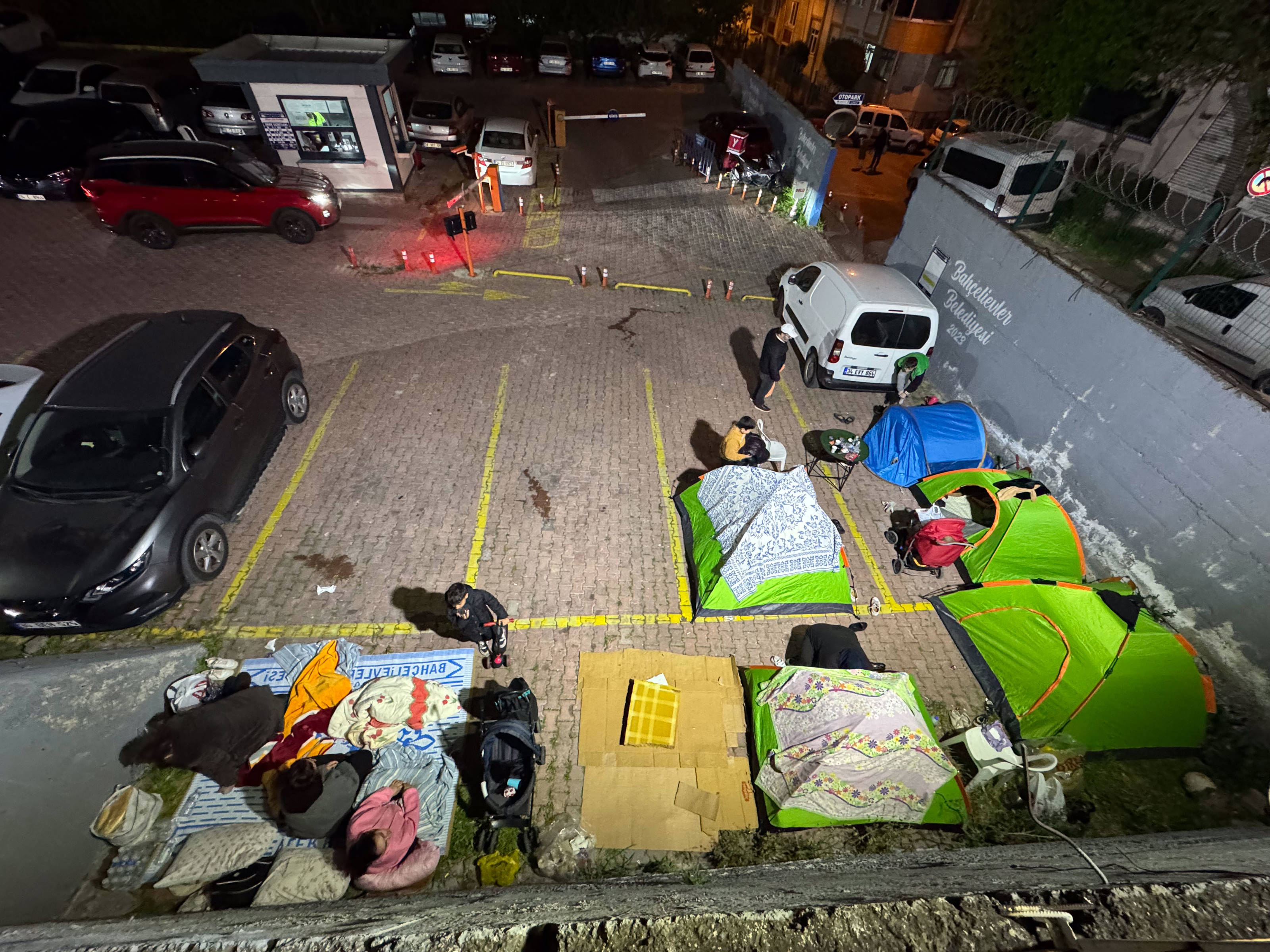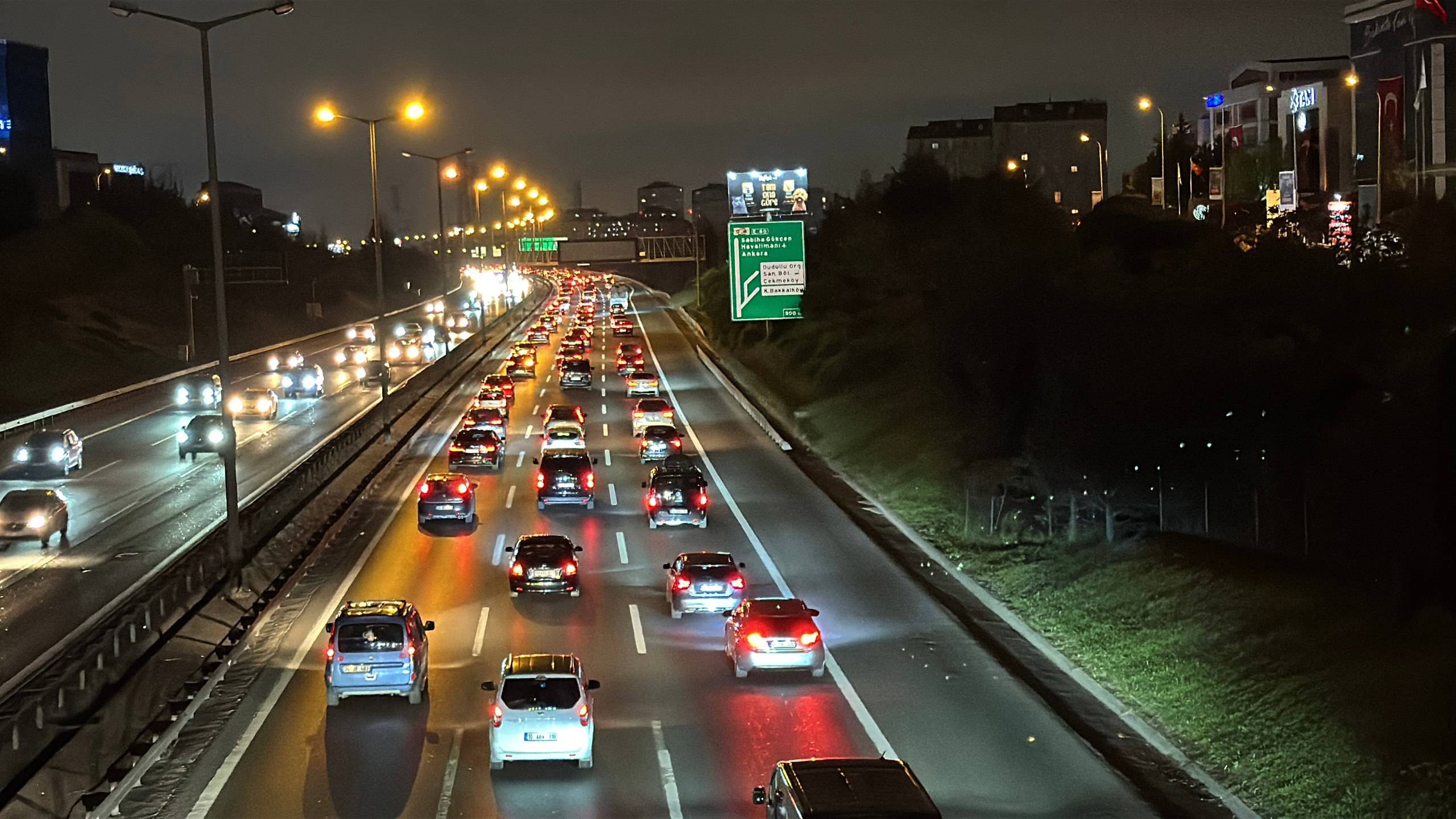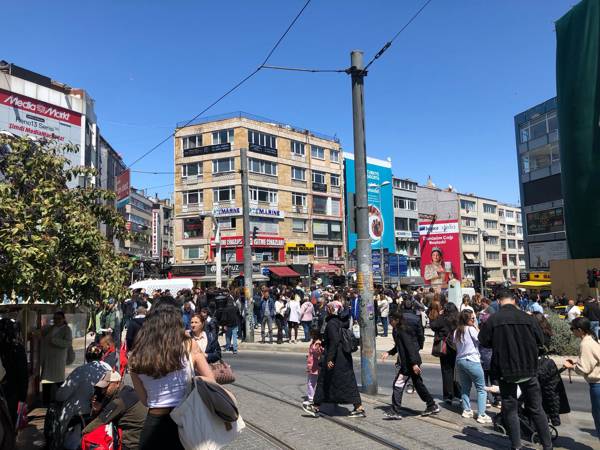İstanbulites spend night outdoors as earthquake triggers fears

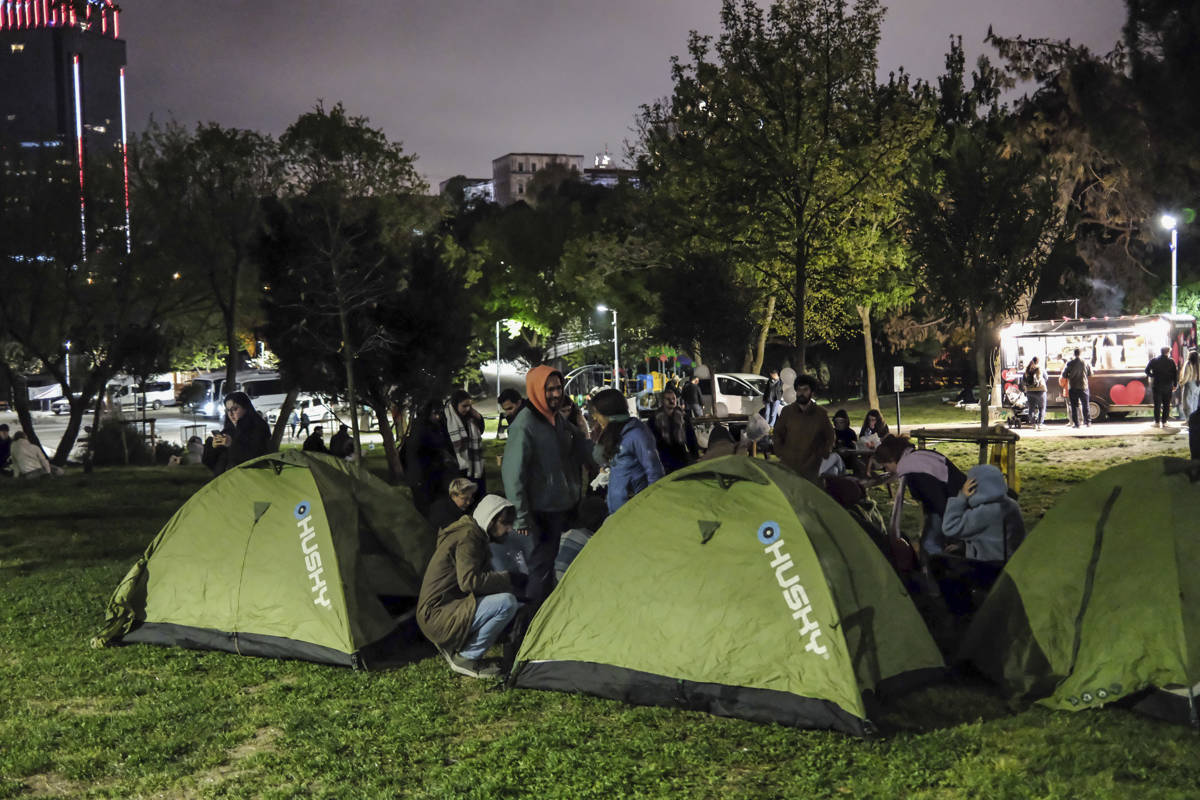
Following a magnitude 6.2 earthquake off the coast of İstanbul yesterday, many residents chose to spend the night outside, fearing aftershocks and potential structural risks.
Despite cool temperatures hovering around 10°C, people set up tents in recreational areas and gathered in facilities kept open by authorities, including schools, mosques, and sports centers. At some of these places, hot soup was distributed to residents seeking shelter.
President Recep Tayyip Erdoğan visited a crisis center for updates before traveling to a municipal social facility in the Kağıthane district, where he met with those displaced by the quake.
Gezi Park: A forbidden zone for tents
One of the gathering points was the Gezi Park in the iconic Taksim Square. However, police prevented residents from pitching tents there while allowing those sitting in the par without tents. Plainclothes and riot police entered the park and forcibly removed tents, Sendika.org reported.
Park-goers questioned whether there was any official restriction in place banning tents in the park, arguing that Gezi was listed among the city's designated earthquake assembly areas.
Police responded by saying, “Then everyone should pitch tents in the assembly areas and turn them into entertainment spots,” according to Sendika.org reporting.
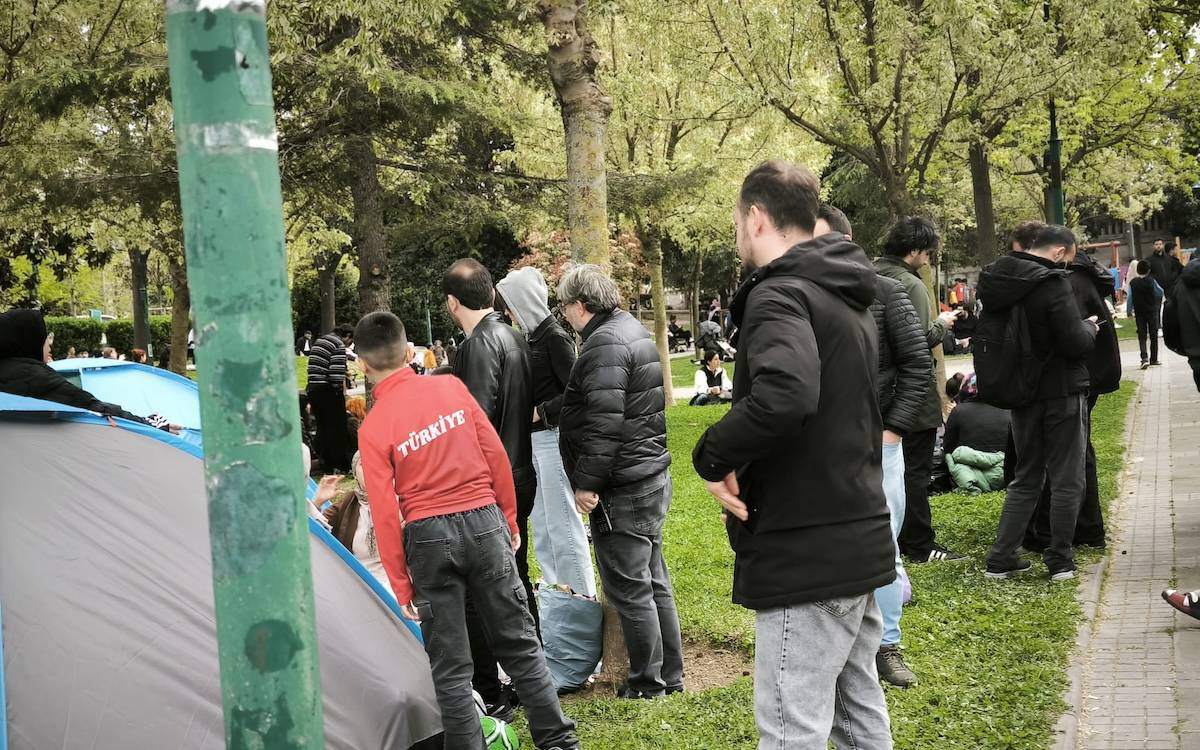
Gezi Park was the epicenter of the nationwide anti-government protests in 2013. The unrest was triggered by then-Prime Minister Erdoğan’s plan to demolish the park and construct a replica of an Ottoman-era artillery barracks as a leisure and retail complex.
Protesters had set up tents in the park to stop the removal of trees, but when police forcibly dismantled the tents and set them on fire, the demonstrations quickly spread across the country.
Damage report
The shortage of green and designated earthquake assembly areas in İstanbul, a city of 15 million, has long been criticized by the opposition, which warns the issue could pose serious risks in the event of a major quake.
While no buildings collapsed in the earthquake, 236 people were injured, 173 of them in İstanbul, mostly due to panic-induced incidents, including people jumping from windows, according to the Health Ministry. Over 200 aftershocks were recorded, some strong enough to be felt across the city.
Environment and Urbanization Minister Murat Kurum said inspections are underway to assess structural damage. As of last night, 12 buildings had been evacuated due to risk, with damage reports filed for 378 others. Kurum noted that the number of evacuations could rise.
Authorities and experts have urged residents to avoid entering buildings with visible structural cracks.
The latest tremor has reignited concerns about the long-anticipated major earthquake in İstanbul. While experts have not definitively linked quake to the expected event, a large-scale earthquake of magnitude 7 or higher is widely considered imminent.
A report by the İstanbul Metropolitan Municipality predicts that a 7.5 magnitude earthquake could destroy or severely damage 48,000 buildings, with another 194,000 sustaining moderate to serious damage.
Former Environment Minister Mehmet Özhaseki had stated in 2023 that of the 6 million housing units in the city, roughly 10% were expected to collapse in such an event.





